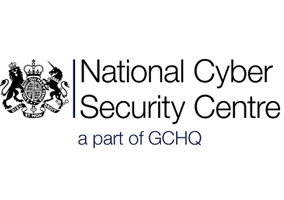Our personal technology choices are not dictated to us by our employers or our jobs. Alternative, more ethical products, exist - and we should be using them.
Last year I wrote an article for Third Sector where I suggested that charities need to draw some sort of line with the likes of Google, Facebook and Amazon due to their questionable business practices and withdraw access to our brands and networks if those lines are crossed.
Easier said than done. Although scandals involving election interference, data misuse, fake news and harmful content seem to be in the news daily and there is growing public dismay, so-called ‘techlash’, I know not of a single UK charity that has stopped using these companies’ products on ethical grounds.
How much worse can things get?
Some thought the genocide in Myanmar, where the United Nations said the government's use of Facebook to whip up hatred and violence against the Rohingya people played a “determining role”, might be a trigger point.
Last year, the New York Times revealed that Google-owned YouTube were curating innocent videos of children playing at the beach and serving them up to paedophiles.
In November Amnesty International released their Surveillance Giants report which highlighted not the symptoms but the disease - the surveillance-based business model which drives these big tech companies. The report concluded that “surveillance capitalism” is now one of the “…defining human rights challenges of our era”. In an accompanying blog post, Amnesty had to grudgingly admit that they need to remain on Facebook and YouTube as there is “no viable alternative to reach the public”.
I’m not blaming anyone here. We have to recognise that our organisations are completely dependent on these companies for reaching the public and in many cases for fundraising. Quit Facebook when people are donating thousands a month through it? Where else would you go? How will you reach as many people? Where will that money come from? Many organisations believe there is no other option.
Other products are available
We are all professionals in our work by day, but we are all also individuals. Far from ignoring these issues, I believe it should make us at least uncomfortable if not angry. At work, we should be acknowledging these problems and discussing them. Those conversations need to happen and can’t be shut down.
While at work it might be necessary to use these big tech platforms. But, once work finishes for the day you make your own choices about the technology you use.
Many people who use Gmail for example, could decide to switch to an encrypted, privacy by design email service like Tutanota or ProtonMail and no longer share private conversations and thoughts with Google.
I have been on an open-source social network called Mastodon, an alternative to Twitter for over a year. The news feed is chronological without an algorithm dictating what I should be looking at to boost ‘engagement’. Mastodon is spread across a federated system of independent ‘instances’ instead of a single host like Twitter.com. This makes it more difficult to manipulate. You can even download and host your own instance. Mastodon has been designed to encourage constructive discussion, not shouty aggression.
Instead of using Facebook-owned Whatsapp you could switch to Signal, a favoured choice of journalists and activists worldwide, and not owned by Mark Zuckerberg.
Most easily of all you can decide which web browser to use. Firefox, developed by the not-for-profit Mozilla Foundation, is built with several excellent privacy features including online tracking blockers. The world’s most popular browser Google Chrome isn’t. I felt so strongly about this that I started a website, notochrome.org, to raise awareness of privacy-respecting, web browsers and tools and to encourage people to think about their digital self-defence.
It’s worrying that one company, Google, can have monopolies across so many markets; web browsers, smartphone OS, maps, online video and search engines. They can control our entire perception of reality. They won’t stop until they have captured the totality of the human information and experience and make it only accessible on their terms and for their profit.
To those who say changing your browser or email service won’t make any difference to the bigger picture I beg to differ. Sending the message to Google and Facebook that there is a world beyond them is only a by-product.
The main reason to change is the reassertion of what former Harvard University Professor Shoshana Zuboff calls “our right to the future tense”. We shouldn’t wait around for Google and Facebook to decide how our lives play out - what tools we can access, what we’re allowed to know. Those of us who are able to make these choices should do so why we still can.
James Mullarkey has worked in digital teams for charities and not-for-profit organisations for over 15 years and is the co-founder of notochrome.org. These are his personal views.
Related articles












